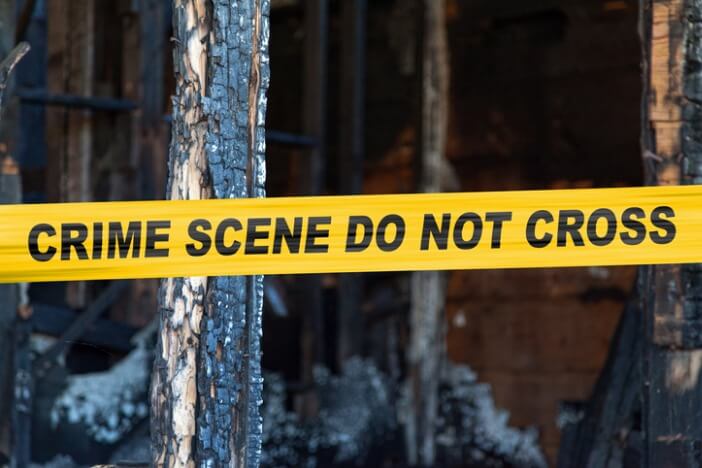What Is Arson?
Arson is the deliberate destruction of a structure by fire or explosion. In general, arson is considered a serious crime and arson cases are prosecuted aggressively. Charges and penalties for arson vary with the nature of the damaged structure and circumstances of the incident itself. They are more severe for cases involving structures normally occupied by people or cases resulting in injury or death. The financial costs incurred by arson may also determine the severity of the charges.
How Is Arson Defined In Florida?
In Florida, arson is legally defined by Florida Statute § 806.031 as willful damage to a structure by fire or explosion, either illegally or in during the commission of another felony. A structure can be any building or enclosed area with a roof, as well as any portable building, tent, vehicle, or watercraft. Arson can also include intentional fire damage to any property surrounding such structures as well as their contents.

Arson & Criminal Mischief
Arson charges are closely related to those for criminal mischief, which is defined in Florida as willful damage by any means of property belonging to another. Typical forms of criminal mischief include graffiti or other types of vandalism. As with arson, charges for criminal mischief vary with the amount of damage caused.
Degrees Of Arson
Florida law classifies several levels of arson charges, depending on the type of structure damaged, the degree of damage, and any injury caused to other people by the fire.
First-Degree Misdemeanor Arson
Involves any act of arson that results in injury to another person, with or without intent to injure another.
First-Degree Arson
Involves deliberate damage by fire or explosion to an inhabited or uninhabited dwelling or any structure in which people are expected to be present. Such crimes are considered a first-degree felony. Penalties can include prison sentences up to 30 years and fines up to $10,000.
Second-Degree Arson
Involves deliberate damage by fire or explosion to property other than that defined in the charges for first-degree arson. This can include deliberate damage to one’s own property as well as that of others. Act of arson that results in great bodily harm or permanent disability to another person, regardless of whether or not such injury was intentional or planned, are also considered second-degree arson. Penalties can include prison sentences up to 15 years and fines up to $10,000. A person charged with second-degree arson may also face additional arson charges for other damage resulting from the same incident.
Elements Of Proof For Arson Charges
If you are charged with arson, prosecutors will seek out elements of proof for arson charges. These could include evidence of intent or forensic evidence such as traces of explosives or ignitable fluids near the fire’s estimated point of origin. Residue from the fire may be sent to the Florida Fire Marshal Bureau of Forensic Fire and Explosives Analysis (BFFEA) to be analyzed for such traces.
Florida Arson Penalties
Penalties for arson in Florida can be severe, and Florida law allows you to be convicted on multiple arson charges related to a single criminal incident. This is why you need a skilled criminal defense attorney if you are facing these charges.
Defenses Against Charges Of Arson
If you are accused of arson, a knowledgeable criminal defense attorney can help you determine the most effective defense for your case. Defense arguments that may be considered in your case include the following:
- Mistaken identity. Your attorney may argue that you were not involved in the incident, and witnesses identifying you had mistaken you for someone else.
- Lack of intent. Charges of first-degree felony arson require proof of intent to cause damage without regard to life or property. Your attorney may present evidence that you lacked such intent.
- Accidental fire damage. Alternately, your attorney may argue that while you did cause a fire, you did so accidentally rather than deliberately.
- Inaccurate forensic analysis. Your attorney may present evidence that the prosecution’s forensic analysis of the fire residue was flawed or biased.
Arson charges are serious business in Florida, and if you find yourself accused, it's critical that you get qualified legal help fast. Criminal defense attorney Adam Stout has extensive experience prosecuting and defending criminal cases. As a former prosecutor, he understands the possible legal maneuvers that could be used against you and knows how to craft the best possible defense for your situation. Don't wait — contact a criminal defense attorney today.
